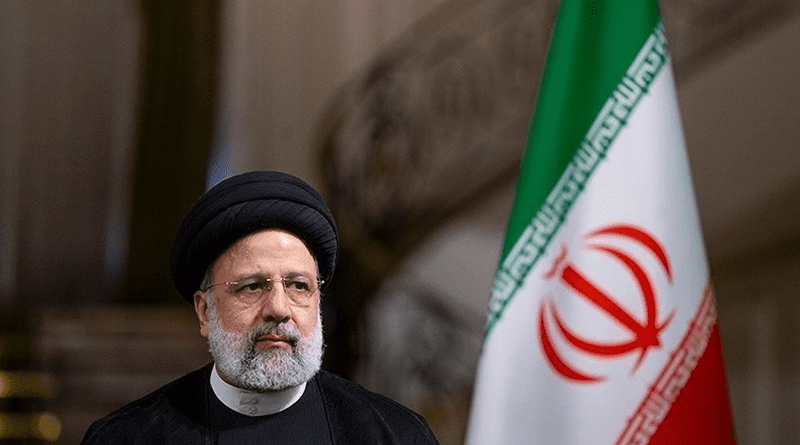Raisi’s Monumental Lies About Iran’s Economy – OpEd
By Mahin Horri
On Tuesday, August 29, Iranian regime president Ebrahim Raisi once again set new records of lies and insolences in a press conference. While economists and the regime’s experts are warning about the destruction of economic foundations and the general public is experiencing the most difficult and dark livelihood situation, Raisi claimed that economic indicators have grown and progressed in all fields.
Raisi claimed that the 103 percent production inflation rate had lowered to 30 percent, the rate of inflation in production of machinery dropped to 19 percent, and production growth was at 6 percent. He added that all indicators show growth and effort and progress. He also claimed that the unemployment situation, which many were worried about, has become 8.2 percent, and authorities of 23 provinces announce that the unemployment situation has completely changed.
However, Raisi could not claim that the price of even one product has decreased or remained constant, because people experience the increase of prices and feel the pressure of inflation every day.
Even the tampered statistics by regime’s institutions that are reported by state-run media show the opposite of what he claims. An infographic report by the state-run Etamed online shows the following price increase of 12 basic commodities: poultry by 203 percent, meat by 318 percent, cooking oil by 328 percent, pasta by 283 percent, sugar by 253 percent, yogurt by 307 percent, and eggs by 161 percent.
On June 13, the state-run Hammihan newspaper interviewed, Saeed Leilaz, a regime-affiliated economist, who warned that volume of currency liquidity created in the 23 months of Raisi’s government is equivalent to the same ratio since Naser al-Din Shah Qajar (19th century) to Hassan Rouhani’s governing period. What’s worse, Leilaz warned, is that two-thirds of the said liquidity was created due to the imbalance of banks and corruption in financial network. He described this liquidity as a complete and full-scale robbery of the Iranian nation.
The situation is so disastrous that Ahmad Alamalhoda, the Friday prayer leader in Mashhad and Raisi’s father in law, while boasting about Raisi’s supposed achievements, inevitably admitted that the people’s livelihood is not stable, and it is not promising to see any improvement tomorrow.
On August 25, Mohammad Ali Nekonam, Friday prayer leader of Shahrekord, who also tried to put a positive spin to Raisi’s economic performance, said, “These are things that can be said to the public.”
Raisi, in his relentless lies, did not shy away from claiming to have solved the water and electricity crisis, but said, “We had 22,000 megawatts of electricity imbalance until today, and now 7,000 megawatts of the imbalance has been compensated… From 10,000 villages that had water tension, the problem of 3,500 of them has been solved.”
Even if we believe Raisi’s figures, these statements mean that there is a shortage of 15,000 megawatts of electricity and 6,500 villages are still suffering from dehydration and thirst.
While in his press conference, Raisi repeatedly spoke about hope and peace in the country, a regime-affiliated reporter pointed to the inflamed atmosphere in the society and the ineffectiveness of current government in controlling crises and said, “We are moving toward a unique polarization in the society being unprecedented in recent years.”
Raisi responded, “We do not agree with the notion of inflamed atmosphere, and this is what the enemy is suffering from. The society is in a coherent state, and the aforementioned polarity and inflammatory condition, is something that the enemy is inducing.”
Raisi in response to a question about his plan to guarantee the scientific environment of the university, spoke with rhetoric and hypocritical generalizations, claiming that preserving the environment of science and knowledge and promoting science and knowledge depends on maintaining peace in universities. Raisi said, “If a few people want to disrupt order in the university, the university itself should not allow them.”
This is not the first time that Raisi responds to questions with inverse rhetoric. In his first press conference after becoming president, in response to question from a foreign reporter about his role in the 1988 massacre, Raisi said his actions were in line defending human rights.
No matter how much Raisi tries to inverse the truth, all these inversions are nothing but a sign of helplessness and fear of the imminent prospect of overthrow.
This article was published by PMOI/MEK

